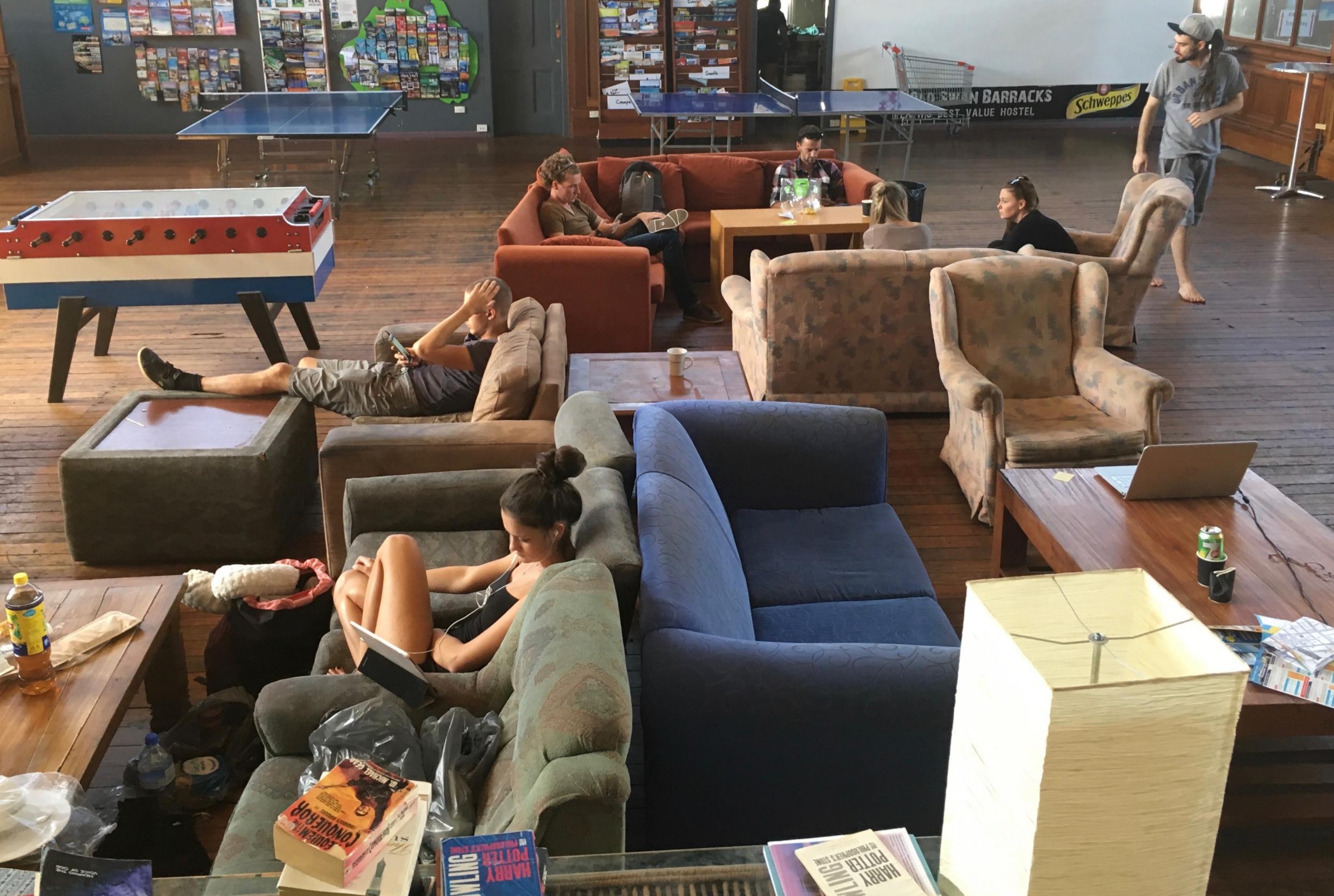Ex-army barracks fails to do Australia a national service
The Man Who Pays His Way: Why it pays to spot the warning signs

One of travel’s many wonders is that you start feeling the benefits as soon as you buy a ticket for a train, boat or plane, or book a great place to stay.
Anticipation is a valuable element of any trip: I booked my Qantas flight from Heathrow to Perth 11 months ahead of the first departure last weekend, and was rewarded with almost a year of looking forward to a Western Australian autumn. But I also injected some serendipity by not deciding where to stay.
On every previous visit to Perth, I have found a good value backpacker hostel in the city’s Northbridge area, either using a guidebook or simply stumbling across a promising place. With the summer peak ebbing away, and a lunchtime arrival in the city, I was confident of finding a good value location.
The nonstop flight of over 16 hours must have dulled my critical faculties. I missed three signals that should have warned me against wandering into the Old Swan Barracks Backpackers’ Hostel and asking for a room.
First, the slogan: “Sleep like a Soldier”. Since when has a military association been synonymous with a good night’s rest, or a recommendation for a place to stay?
Next, the sign planted to the right of the entrance reading “Old Swan Barracks Hotel”. Is it a hotel or a hostel?
To the left, a banner proclaims that the property was a finalist in the “Best Backpacker Night in Perth” awards. But not this year, nor last. Praise is rarely fainter than having being on a shortlist six years ago.
But I ignored the warning signs, and found myself handing the helpful receptionist A$60 (£33) for a private room; since I was on a very different time zone to most of the guests and I thought some solitude would be better for them (and me).
The staff are pleasant and obliging. But the property isn’t. The communal area is huge, and has all the atmosphere of the aircraft hangar that it resembles. People gather here not to socialise, but because it is the only place in the hostel with wifi. Internet access is as slow as in India in the 1990s, which made something as simple as writing a TripAdvisor review a matter of hours, not minutes.
Up to the room, via stairs sticky with many years of spillages. The room is plain and threadbare, and the windows cannot fully close. I’m not sure I slept like a soldier, but I woke up feeling like a prisoner of war.
Next morning, the rush hour traffic sounded as though it was in the room with me. Breakfast is included, and included in breakfast you find: an Australian take on Weetabix, cornflakes, white bread and jam. To avail of it, you’ll need a plate, bowl and mug, for which you must pay a crockery deposit of $10. No, I hadn’t heard of such a concept, either. And woe betide anyone who leaves anything behind: “Please do not leave any of your belongings in our bins or anywhere on our property — $500 statutory dumping charge will be levied,” warns a sign.
Next time, I’ll try jail: in the shape of the YHA hostel created from a corner of the prison in Fremantle, where the Swan River meets the Indian Ocean. I’m already looking forward to it.
Join our commenting forum
Join thought-provoking conversations, follow other Independent readers and see their replies
Comments
Bookmark popover
Removed from bookmarks